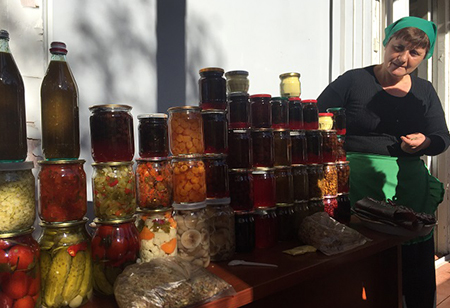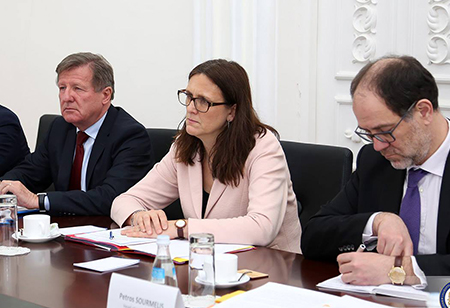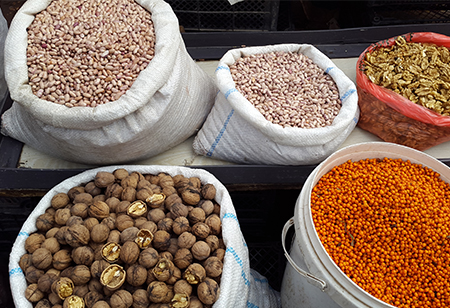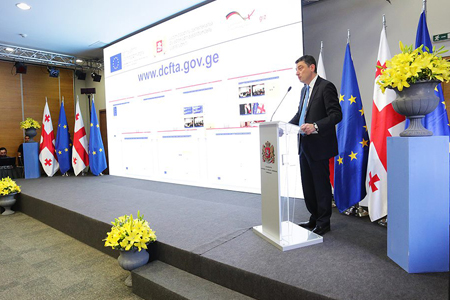How to catch DCFTA opportunities?
EU seminar enhances skills of Georgian small businesses

Georgia is striving to increase the amount of Georgia-made products in the European Union (EU) market and reach its 500 million consumers.
For this purpose a special seminar was held today in Georgia’s capital Tbilisi which gathered authorities and representatives from local small and medium-sized enterprises (SMEs) under one roof.
The seminar ‘SMEs Development and Deep and Comprehensive Free Trade Area (DCFTA) in Georgia’ was held within the EU4Business initiative.
The EU4Business was a technical and financial assistance package of EU-funded programs worth over €62 million that mainly assisted SMEs to better access the EU market.
At today’s seminar we provided information about the obligations Georgia had within the DCFTA deal. We talked about the transmission period and the planned reforms. It is very important that entrepreneurs have all information about what reforms were planned within the DCFTA deal. It is important to involve these people in this process,” said Deputy Minister of Economy Genadi Arveladze.

Dozens of SME representatives attended today's seminar where they learnt about the future reforms within the DCFTA deal. Photo by Georgia's Ministry of Economy's press office.
At the seminar the authorities provided a range of information about DCFTA opportunities to small businesses.
The main goal of the meeting was to support and enhance the skills of local SMEs to catch the opportunities offered by the DCFTA.
Arveladze said the seminar aimed to help SMEs increase the competitiveness of products made in Georgia in EU markets.
The DCFTA was part of the Georgia-EU Association Agreement (AA) deal signed in July 2014, one of EU's the most ambitious bilateral agreements yet.
The DCFTA will offer Georgia a framework for modernising its trade relations and for economic development by the opening of markets via the progressive removal of customs tariffs and quotas, and by an extensive harmonisation of laws, norms and regulations in various trade-related sectors, creating the conditions for aligning key sectors of the Georgian economy to EU standards.
 Tweet
Tweet  Share
Share




